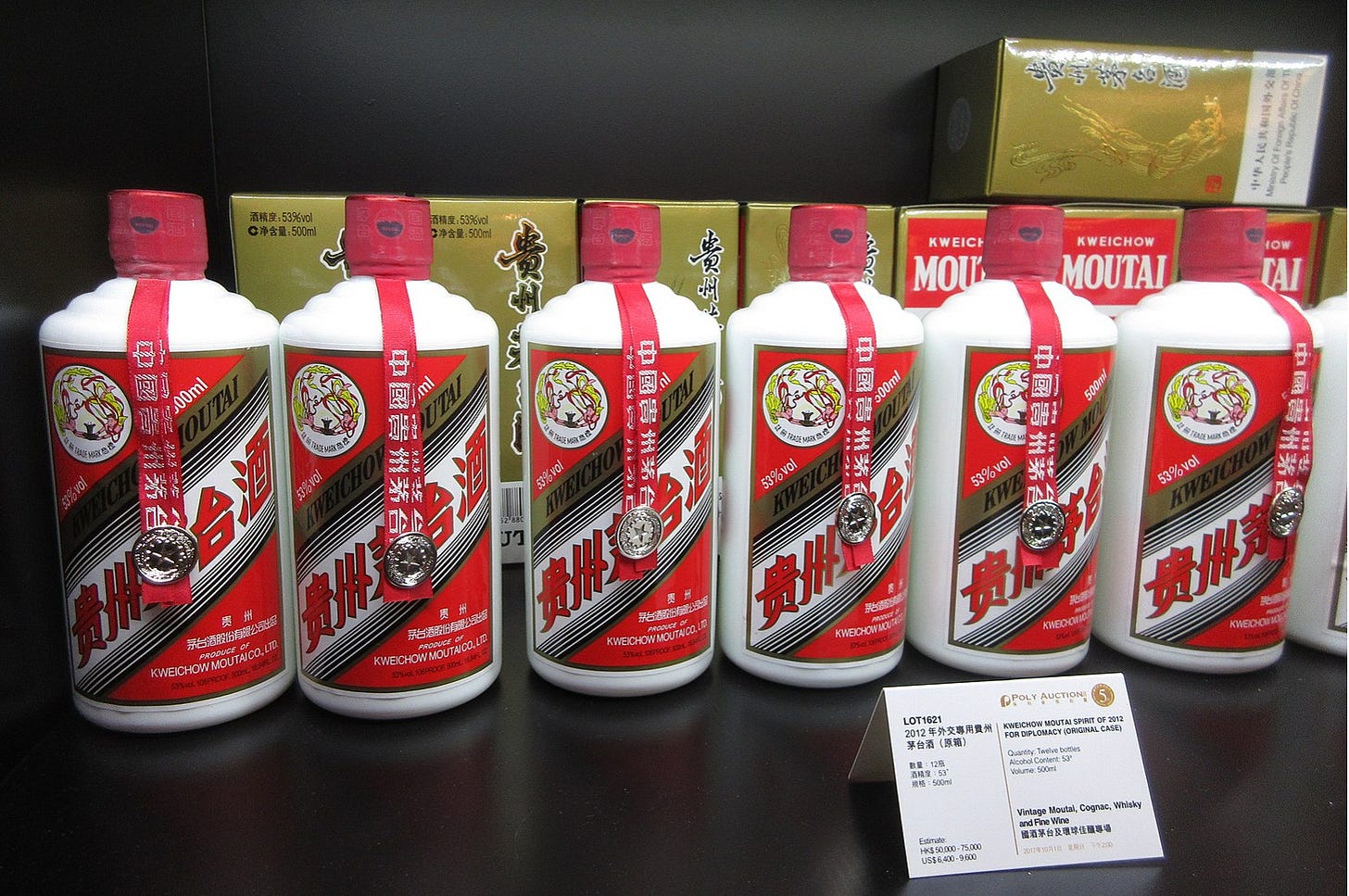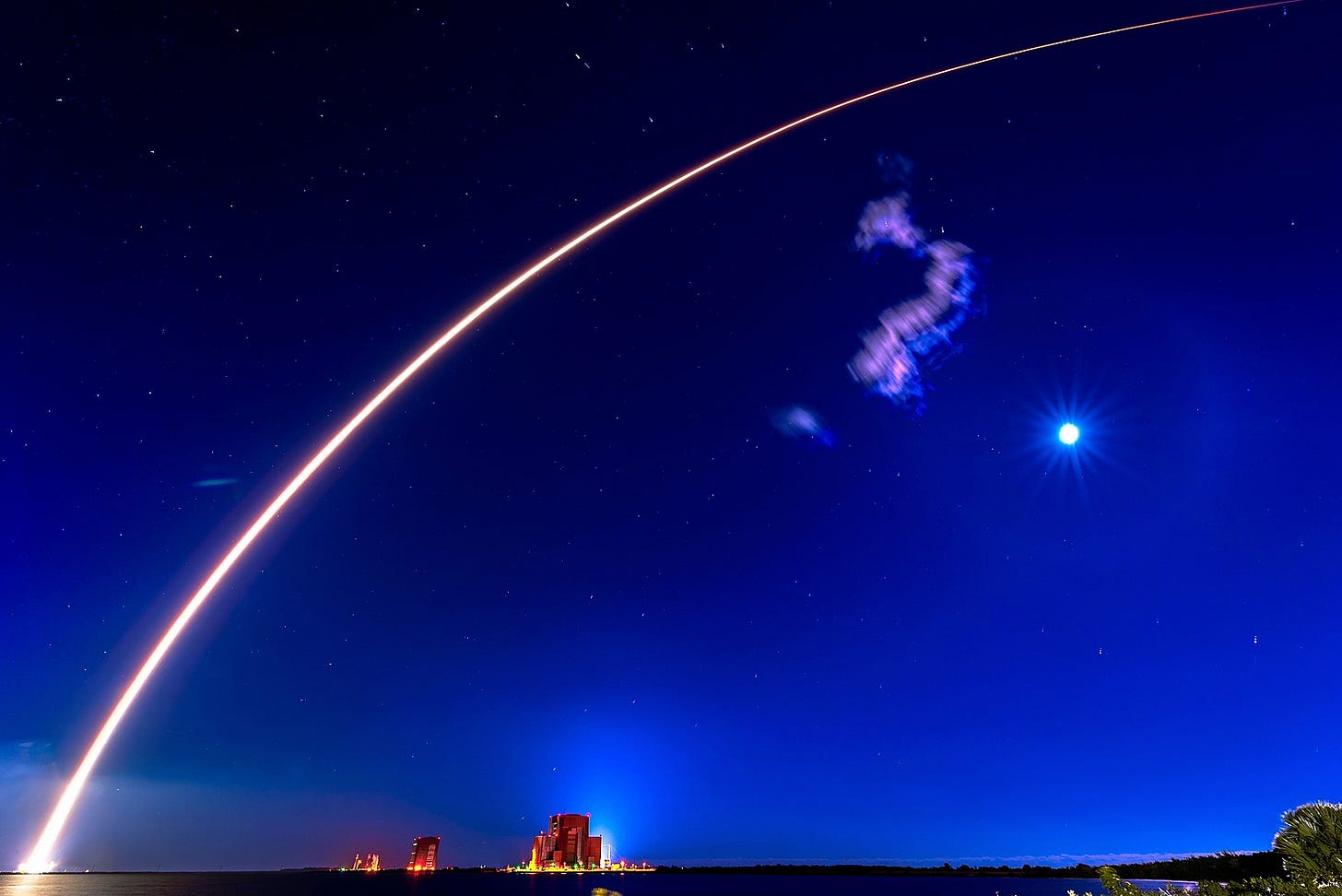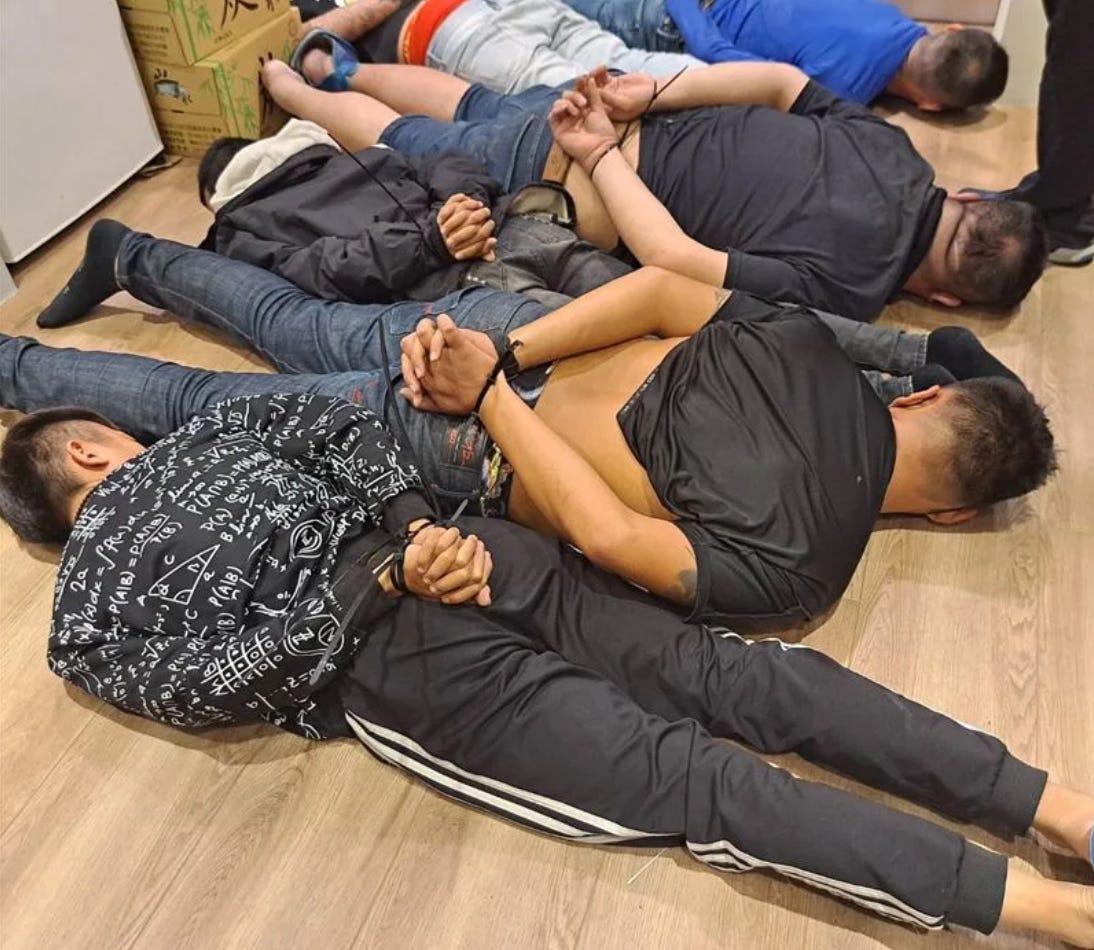Struggle and toil
What Xi Jinping's mantra really means: shut up about the economy and just put up with the lockdowns
Xi Zhongxun, Xi Jinping’s father, being ‘struggled’ during the Cultural Revolution. Photo: WikiCommons.
If you listen to representatives of the Communist Party of China – ChinaDiction doesn’t recommend it unless you have to – the Chinese love struggle.
They love toil and tightening their belts and even “eating bitterness” and attempting to live in the “bitter sea.”
There are whole books about this stuff. General Secretary Xi Jinping talks about it a lot – increasingly so, the more entrenched his power has become – and as the premier China Substacker Bill Bishop notes in Sinocism “Ding Xuexiang, now a Standing Committee member and as of Xi’s recent trip to Shaanxi still head of the General Office of the CPC Central Committee, has been taking to the People’s Daily to promote China’s tirelessly-touted “great rejuvenation.”
A Wednesday article …
… emphasizes the challenges ahead and the need to strictly align with Xi and the center’s policies. The concluding paragraph uses the term “struggle 斗争” 8 times, and for “contradictions among the people” calls for using the concept of “unity-criticism-unity 团结—批评—团结”, which I believe was first used by Mao in 1942 and became famous/infamous from Mao’s 1957 “On The Correct Handling Of Contradictions Among The People”.
Yes, we’ve been hearing about it for ages – it’s one of Xi’s pet themes: the easy, rake-in-the-dosh-hand-over-fist days are over, tighten your belts and gird your loins for war: against covid and presumably corrupt Western values, and who need all those tiny semiconductor chips anyway?
Oh, and let’s correctly handle contradictions among the people.
Author Alec Ash, who has recently emerged from three years in Dali, Yunnan Province, opines that, actually, out in rural China most people don’t object to the horrors of zero-covid like, say, Shanghai people do, because it doesn’t really affect them all that much and keeps the dreaded virus at bay.
Ash himself went nearly three years, he claims, without even being tested. This would likely be because Dali is still a relatively remote valley in Yunnan, despite its popularity as a tourist destination – and well-tested negative tourists equals no covid.
Which leads to the point. Yes, zero covid is terrible for business, terrible for many residents of teeming first-tier cities where tests can be almost daily and required to simply function outside the home, but it’s not as if all of China is on the brink of revolt.
Many Chinese clearly think that keeping the virus out is a good idea, and in their defense many experts in the West are now debating the possible downsides to long-term endemicity.
All this is the case amid repeated rumors that China is poised to make at least some changes, rendering it easier, say, for foreign business people to access the country. That may happen. Will China sweep aside “dynamic cleansing” – as zero covid is referred to in China – completely by the end of winter?
Highly unlikely, unless there’s a significant breakthrough that can be easily mass produced and circulated that stops transmission of Covid-19.
China clearly doesn’t want to let it rip and just live with the virus.
As Bloomberg reported on Thursday:
China’s top health body said the nation’s zero-tolerance approach remains the overall strategy to fighting Covid-19 after unverified social media posts buoyed hopes the policy would be eased.
‘We must resolutely maintain the general approach of '“preventing imported cases and domestic resurgence” and the overall strategy of ‘dynamic Covid Zero.”
The Bridge Man
In a fascinating Twitter thread on Thursday, Phil Cunningham, an “independent scholar” provides some background to the man who briefly shocked Beijing and the world with a public act of dissent, calling Xi Jinping a thief and a dictator, as Xi was poised to become chairman of everything for a third term.
Peng Lifa does not appear to be mad. As Cunningham notes, in apparent “anticipation of his fate, the lone protester left numerous messages online in various social media accounts … [calling] “for a general strike to oppose the Xi dictatorship.”
That, of course, did not happen, but …
What does it tell us? Nothing we didn’t really know – all opposition to Xi has been incarcerated, gone underground or is in exile.
But the tiny swell of excitement generated by photos on WeChat before they were scrubbed – and in some cases the WeChat accounts themselves too – in Beijing by motorists who witnessed the banners and the fire speaks of a hidden China that can only dream of inclusion in the political process.
Common prosperity hits pricey booze
Yup, it looks like something your local car mechanic always has in stock, and that’s what it tastes like. Photo: HunagnTwuai; WikiCommons.
The Wall Street Journal reports that, shock horror, Xi Jinping’s recent reiterations of his plans for “common prosperity” – like, not just socialism with Chinese characteristics, but socialism with socialist characteristics – could impact the sales of luxury baijiu for the country’s wealthy elites.
Shares of Kweichow Moutai Co., 600519 -2.21%decrease; red down pointing triangle a state-owned company whose potent liquor can cost $700 a bottle, tumbled 28% in October to their lowest level in more than two years. The decline erased roughly $100 billion in market capitalization in just a month.
Whatever next?
Scholz meets Xi
Image: 巴丢草 Bad ї ucao.
Chinese President Xi Jinping met with German Chancellor Olaf Scholz, accompanied by half of corporate Germany in a visit that led to headlines like this one by the BBC: “Scholz asks China to press Russia to end its war”
Yes, well, right.
The timing is seen as highly questionable by many in Europe - including members of Mr Scholz's own government, who worry that his presence will serve to burnish the domestic reputation of an increasingly authoritarian Mr Xi.
But the German chancellor, like his predecessor Angela Merkel, argues that global problems can only be solved through co-operation with China. Meeting face to face, he said, facilitated discussion, even of issues over which both countries strongly disagree.
On the question of that war that is wreaking havoc with energy supplies to Germany, the BBC also notes, “China’s foreign ministry did not quote President Xi as using the words “irresponsible” or “highly dangerous."
Some truth telling:
And one more:
The Greater Sinosphere
Australia
We can process our own rare minerals
In a move that was sure to anger China – it’s a global trend if you’re not German or an autocratic Chinese vassal state – Australia initiated moves on Tuesday to become a major exporter of the minerals of the future, rather than allowing itself to remain reliant on China, Sky News reports.
Australia’s resources minister said that China had “successfully forecasted the need for critical minerals to fuel much of the world’s technological advancements and had ‘made the most of it’.”
But speaking to Bloomberg … [Resources Minister Madeleine] King said it was the government’s intention to “make the most of the natural endowment we have of these resources, so that we can provide an alternative source of them from China”.
Canada
Give us our mines back
National security concerns are trumping investment in the Canadian mining sector, with Chinese stakeholders being told to immediately sell three Canadian mining companies, The Guardian reports.
“While Canada continues to welcome foreign direct investment, we will act decisively when investments threaten our national security and our critical minerals supply chains, both at home and abroad,” Canada’s industry minister, François-Philippe Champagne said in a written statement.
At issue is the fact that China has become the world’s largest refiner and processor of critical minerals for future industries, building an extensive supply chain based on overseas mines.
Critical minerals and metals include lithium, cadmium, nickel and cobalt. They are essential for clean energy technologies, including turbines and electric cars and solar panels. They are also a necessary part of laptop computers and rechargeable batteries.
Australia is facing a similar dilemma – see above.
Hong Kong
‘Get in front’
More than 200 international bankers and money managers of various flavors gathered at the Global Financial Leaders’ Investment Summit, and it was clearly an exciting day for the city’s latest chief executive, John Lee.
‘Opportunity and timing, right here, right now in Hong Kong. This is the moment you have been waiting for. Go for it. Get in front, not behind,’ said Lee.
There were glitches, as the Financial Times reports:
‘We’re back!’ Hong Kong’s financial secretary Paul Chan told a conference intended to show the Chinese city was open for business following the lifting of coronavirus measures that undermined its status as a hub for international finance.
But Chan himself was not back at all. After catching Covid-19 on a work trip, he was stranded in the Middle East owing to Hong Kong’s remaining pandemic restrictions and appeared at the fintech gathering on Monday via a video link.
The assembled bankers were not phased in the least. They’re bankers, after all, accustomed to living life on the razor’s edge.
‘We’re not reading the American press, we actually buy the [China] story,’ said Kelleher, chair of the world’s biggest wealth manager. ‘But it is a bit [of a matter of] waiting for zero-Covid to open up in China to see what will happen.’
Chinese banking officials were virtually present to rally such sentiments.
‘Don’t bet against China,’ Fang Xinghai, a vice chairman of the China Securities Regulatory Commission, said in a recorded interview at the gathering of more than 200 top financiers. China’s opening can only become ‘bigger and bigger’ going forward, he said
But Shuli Ren, writing for Bloomberg Opinion, says that not all the bankers are buying the Kool Aid and that some admit the salad days are gone and never coming back.
For decades, financiers in Hong Kong have been China’s biggest cheerleaders and its bridge to developed nations. They advocated for economic growth and argued for a better relationship between the two superpowers when no one else was. Even they’re losing faith in Xi’s China.
Taiwan
The chips? What about them?
Not so long ago it was a truism of cross-strait analysis that at the end of the day Taiwan had its silicon defense – an attack by China would render the world chip-less – devoid the of the tiny etched wafers that maintain the onwards-and-upwards mobility of the teetering global economy.
But what if China doesn’t care? asks a Financial Times opinion writer:
In corporate boardrooms as well as defence ministries, concern is growing that mutually assured economic destruction may not keep the peace in the Taiwan Strait. Multinational businesses have invested many billions of dollars in both Taiwan and China on the assumption that war is simply too costly.
Yet just this year, Germany’s bet on the same thesis for securing its energy supply has gone horribly wrong. Xi Jinping may seem more likely than Vladimir Putin to be dissuaded by the cost of war. However, as its economically disastrous Covid lockdowns have shown, China’s leaders are no longer so fixated on economic growth.
Subsidies and the US sanction maneuver on the “chip chokehold” are diversifying supply lines, but that’s even less likely to deter an attack on Taiwan:
Previously, almost all of TSMC’s recent investment was in Taiwan or China. Now it is diversifying its fabrication footprint, building a new chip fab in Japan and exploring one in Singapore, too. TSMC’s change in tack is driven by subsidies from these governments as well as political pressure to reduce the concentration of chipmaking along the Taiwan Strait.
Taipei plans Starlink alternative
Starlink launch. Photo: U.S. Space Force photo by Joshua Conti. Public Domain.
The Telegraph reports that Taiwanese authorities regard Elon Musk’s Starlink as an unreliable comms Plan B in the event of invasion by Tesla-manufacturing China and is exploring put its own satellite communication network into space.
In an interview with the Financial Times earlier this month, the billionaire, who has significant business interests in China, suggested Taiwan could become a Chinese ‘special administrative zone.’
Meanwhile …
… Starlink has been a vital asset to Ukraine’s military since it arrived last spring [but] in October Mr Musk told the Pentagon he might be forced to pull the network if the US does not begin financially contributing.
He also angered Ukrainian president Volodymyr Zelensky by weighing in on Twitter with an unsolicited Russia-Ukraine peace plan.
Taiwan’s defense minister, Chiu Kuo-cheng (Qiū Guózhèng, 邱國正), has warned that Taiwan’s communications would be first in line in a direct attack.
The bidding process for pilot projects are likely to begin as early as next week and a special budget of US$16.5 million has been allocated for next year.
Cops nab dodgy employers
Job applicants in Taoyuan. Photo: Taoyuan Police via CNA.
In what police and local media are describing as a “Cambodia-style kidnapping and fraud operation,” police rescued 32 “job applicants” in Taoyuan City just a week after 26 people were rescued in New Taipei City after responding to fake job ad, the Taipei Times reports.
That’s when the story turns chilling …
During the raid in Taoyuan’s Jhongli District (中壢), police seized handcuffs, plastic wrist binders, electroshock weapons, metal rods and other devices believed to have been used to torture the victims, all of whom had bruises and injuries from being beaten, while some had also been burned with cigarettes, the New Taipei City Police Department Criminal Investigation Corps told a news conference yesterday.
Police said they recovered the bodies of three victims — two men and a woman — in a mountainous area of Taoyuan’s Kueishan District (龜山) and in Nantou County.
According to the police, the Taoyuan ring was over overseen Lu Cheng-yi (Lǚ zhèngyí, 呂政儀), who has been arrested and is facing multiple charges along with accomplices.
The Taipei Times reports that the victims claimed to have applied for high-paying jobs, but were taken hostage during their interviews and forced to “hand over their IDs and personal belongings, including bank account books,” before being forced to make phone calls to request money for their freedom.
Free pork buns and more
We frequently comment on the quirkiness of Taiwan politics, which throws up the occasional alleged murderer/rapist/thug (see our recent reports based on Courtney Donovan Smith’s reporting in the Taiwan News last month on the mad action in Miaoli County) – and then there’s Huang Hung-chung, whose full self-designated name is too long to fit on his ID card.
That’s because most Chinese names comprise two, three or at most four characters – the latter in the case of rare double-barreled surnames such as Sima. Huang goes by the name of Huáng Hóngchéng Táiwān ā-chéng, Shìjiè Wěirén, Cáishén Zǒngtǒng, 黃宏成台灣阿成世界偉人財神總統,or Huang Hung-chung, Taiwan Chungy, World-renowned Great, God of Wealth President.
He’s from Chiayi County – another somewhat unreconstructed Taiwanese locality if you ask us – and has been known to campaign in his underwear “wearing a hat with horns on it, each with an additional pair of underwear,” according to the tweet thread.
Among other things, he wants to drill a tunnel to Xiamen, Fujian Province, China, claims to be “bluer than blue and greener than green” and promises everyone “free pork buns,” which is clearly a campaign winner.
Give us those buns and Taiwan is yours!
Tectonics unlikely to move Taiwan beyond China’s reach
Taiwan, unfortunately, is not drifting farther away from China with the Pacific Plate and the Philippine Sea Plate, although tectonic forces are probably changing the shape of the island very slowly, the Taipei Times reports.
The Earth’s mantle is exerting pressure on the Eurasian Plate, the Philippine Sea Plate and the Pacific Plate, gradually changing the shape of Taiwan proper, bureau Director-General Cheng Ming-dean (Zhèng Míngdiǎn, 鄭明典) said.
However, he said the nation is not moving east from the vantage point of the Eurasian Plate, on which China lies.
The basic explainer here is that the Philippine Sea Plate is subducting under Taiwan’s Central Mountain Range on its east coast, but is moving in concert with Eurasian Plate on which China sits, so they’re drifting east together, and could – brace yourself for this one – even move closer together.
Coda
Till SARS do us part
It’s remarkable, the adaptability of human beings to changed circumstances, and here’s a couple going about their wedding vows in a zero-covid China.
It’s a glowing sign of China’s relaxed approach to the global pandemic that the bride and groom are not required to wear Hazmat suits – if they were who knows who could wind up married to whom …















